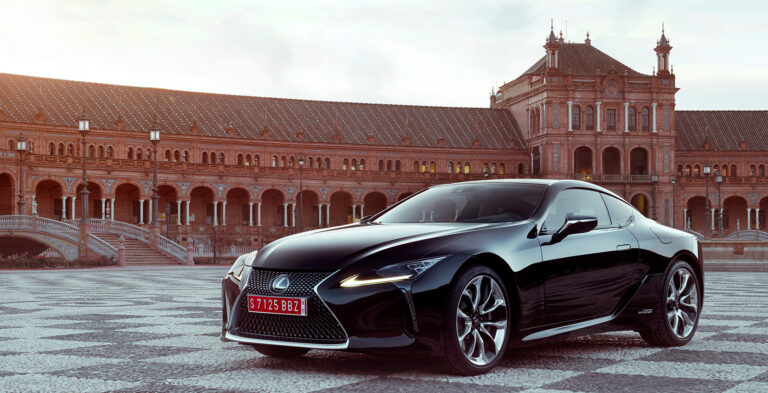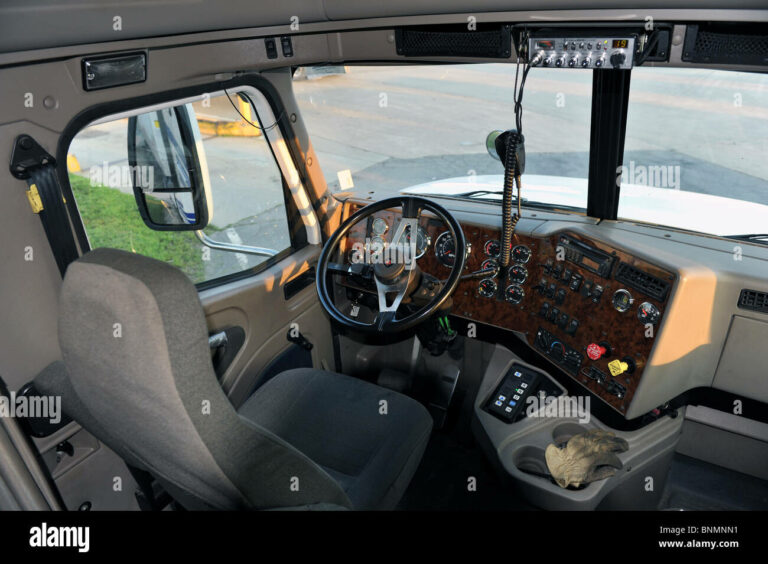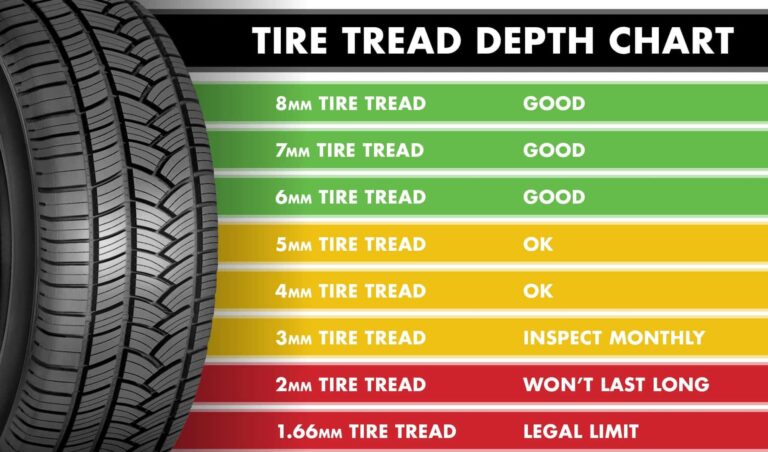What Is The Most Reliable Car Brand? Unpacking the Truth About Automotive Dependability
What Is The Most Reliable Car Brand? Unpacking the Truth About Automotive Dependability cars.truckstrend.com
In the vast and ever-evolving automotive landscape, one question consistently looms large for prospective buyers: "What is the most reliable car brand?" This isn’t merely a matter of curiosity; it’s a critical consideration that impacts long-term ownership costs, peace of mind, and even safety. A reliable car brand signifies a commitment to quality engineering, durable components, and meticulous manufacturing processes, ultimately translating into fewer breakdowns, lower repair bills, and a more predictable driving experience. Understanding what constitutes automotive reliability and which brands consistently deliver it is paramount for making an informed and satisfying vehicle purchase.
What Does "Reliability" Truly Mean in the Automotive World?
What Is The Most Reliable Car Brand? Unpacking the Truth About Automotive Dependability
Before we crown a "most reliable" brand, it’s essential to define what reliability truly entails. It’s more than just a car starting every morning. Automotive reliability encompasses several key dimensions:
- Infrequent Breakdowns: The car performs its intended functions consistently without unexpected failures.
- Low Repair Frequency and Cost: When issues do arise, they are minor, easily diagnosable, and inexpensive to fix. Major component failures (engine, transmission) are rare.
- Longevity and Durability: The vehicle’s components and systems withstand the test of time, mileage, and various driving conditions, allowing the car to last for many years and high mileage.
- Consistent Performance: The car maintains its intended performance characteristics (fuel efficiency, ride quality, power) over its lifespan.
- Customer Satisfaction: Owners report high levels of satisfaction with their vehicle’s dependability and the overall ownership experience.

It’s important to note that "reliability" is often measured by reported problems per 100 vehicles (PP100) or through owner surveys tracking issues over a specific period (e.g., the first three years of ownership).
Key Players in Reliability Rankings: Who Measures What?
Several independent organizations dedicate resources to tracking and ranking automotive reliability. Their methodologies vary, but collectively, they offer a comprehensive picture:
- Consumer Reports (CR): Perhaps the most widely respected source, CR gathers data from its members on problems they’ve experienced with their vehicles over the past 12 months. They use this data to predict the reliability of new models, considering 17 trouble areas from minor nuisances to major engine issues. Their rankings are highly influential.
- J.D. Power: Known for its various quality and dependability studies, J.D. Power conducts surveys with original owners of new vehicles after 90 days of ownership (Initial Quality Study – IQS) and after three years of ownership (Vehicle Dependability Study – VDS). The VDS, in particular, focuses on long-term reliability.
- RepairPal: This platform uses a vast database of repair orders from thousands of shops to estimate the average annual repair cost, frequency of repairs, and severity of repairs for different makes and models. This offers a practical, cost-centric view of reliability.
- Warranty Direct / Insurers: Some extended warranty providers or car insurance companies compile their own data based on claims, which can provide insights into common failure points and overall vehicle robustness.
While their exact rankings may differ slightly year-to-year due to methodological nuances, a consistent pattern emerges across these sources regarding the top-tier reliable brands.
The Contenders for "Most Reliable": A Deep Dive into Top Brands
For years, a handful of brands have consistently dominated reliability charts. Let’s explore the leading contenders:
1. Toyota: The Undisputed King of Reliability
Time and again, Toyota emerges at or near the top of virtually every reliability study. Their reputation for building incredibly durable, long-lasting vehicles is well-earned.
- Why they’re reliable: Toyota’s philosophy centers on the "Toyota Production System" (TPS), emphasizing continuous improvement (Kaizen) and defect prevention (Jidoka). Their engineering is often described as conservative yet highly refined, prioritizing proven technology over cutting-edge but potentially unproven innovations. Components are over-engineered, and quality control is rigorous. They also benefit from widespread parts availability and a vast network of dealerships.
- Popular Reliable Models: Camry, Corolla, RAV4, Highlander, Prius. These models consistently rank among the most dependable in their respective segments.
- Average Annual Repair Cost (RepairPal): ~$441 (Lower than average)
2. Lexus: Toyota’s Luxury Epitome of Dependability
As Toyota’s luxury division, Lexus inherits the same meticulous engineering, manufacturing prowess, and commitment to quality. The result is a luxury brand that consistently outperforms its European rivals in terms of long-term dependability.
- Why they’re reliable: Lexus vehicles benefit from the same robust platforms and powertrains as their Toyota counterparts, but with added layers of refinement, premium materials, and advanced features. The focus remains on flawless operation and long-term owner satisfaction.
- Popular Reliable Models: ES, RX, GX, IS.
- Average Annual Repair Cost (RepairPal): ~$551 (Lower than average for luxury brands)
3. Honda: The Engineering Prowess of the Rising Sun
Another Japanese giant, Honda, stands shoulder-to-shoulder with Toyota in terms of reliability. Known for their refined engines, clever packaging, and engaging driving dynamics, Honda vehicles are built to last.
- Why they’re reliable: Honda’s engineering is precise and innovative, focusing on efficient and durable powertrains. Their VTEC engines are renowned for their longevity and performance. Like Toyota, they employ stringent quality control and a philosophy of building vehicles that withstand extensive use.
- Popular Reliable Models: Civic, Accord, CR-V, Pilot, Odyssey.
- Average Annual Repair Cost (RepairPal): ~$428 (Lower than average)
4. Mazda: A Resurgent Star in Dependability
In recent years, Mazda has made remarkable strides in reliability, often climbing into the top echelon of various rankings. They’ve successfully combined engaging driving dynamics with impressive dependability.
- Why they’re reliable: Mazda’s "Skyactiv" technology suite focuses on optimizing every component for efficiency and performance, but also for durability. They’ve adopted a less-is-more approach with complex features, prioritizing proven, robust systems. Their focus on driver engagement hasn’t come at the expense of quality.
- Popular Reliable Models: Mazda3, CX-5, CX-9, MX-5 Miata.
- Average Annual Repair Cost (RepairPal): ~$462 (Lower than average)
5. Subaru: Rugged Reliability with All-Wheel Drive Prowess
While perhaps not consistently at the very top, Subaru maintains a strong reputation for reliability, particularly among owners who value their standard Symmetrical All-Wheel Drive system and Boxer engines.
- Why they’re reliable: Subaru vehicles are built for durability, especially in harsher climates and varied terrain. Their core components (Boxer engine, AWD system) are robust. While some specific models or generations might have isolated issues (e.g., head gaskets on older models), their overall dependability is solid.
- Popular Reliable Models: Forester, Outback, Crosstrek.
- Average Annual Repair Cost (RepairPal): ~$617 (About average)
6. Hyundai & Kia: The Korean Powerhouses’ Ascent
Once considered value-oriented but perhaps lacking in long-term reliability, Hyundai and Kia (part of the same automotive group) have made monumental improvements over the past two decades. They now frequently rank above average and sometimes even challenge the Japanese stalwarts.
- Why they’re reliable: Significant investments in research, development, and manufacturing quality, coupled with highly competitive and long warranties (e.g., 10-year/100,000-mile powertrain warranty), have boosted consumer confidence and actual reliability. They offer modern designs and features without sacrificing dependability.
- Popular Reliable Models: Hyundai Elantra, Sonata, Tucson; Kia Forte, Sorento, Telluride.
- Average Annual Repair Cost (Hyundai): ~$468 (Lower than average)
- Average Annual Repair Cost (Kia): ~$465 (Lower than average)
Factors Influencing Individual Car Reliability (Beyond Brand)
While brand reputation is a strong indicator, it’s crucial to remember that individual car reliability can be influenced by several other factors:
- Model-Specific Issues: Even a reliable brand can have a specific model or engine/transmission combination that proves less dependable than others. Always research the specific model year you’re considering.
- Maintenance Practices: A vehicle’s reliability is heavily dependent on regular, proper maintenance. Skipping oil changes, fluid flushes, or scheduled inspections can drastically reduce a car’s lifespan and increase breakdowns.
- Driving Habits: Aggressive driving, frequent short trips, or consistently hauling heavy loads can put extra stress on components and lead to premature wear.
- Environmental Factors: Extreme temperatures, salty roads (corrosion), and dusty conditions can all impact a car’s long-term health.
- Recalls and Service Bulletins: While recalls address safety defects, service bulletins indicate known issues that dealers can fix under warranty or during routine service. Staying on top of these can prevent future problems.
Practical Advice for Choosing a Reliable Car
- Research Specific Models, Not Just Brands: While brand reputation is a good starting point, always dive deeper into the specific model and model year you’re interested in. Check Consumer Reports’ detailed reliability ratings for that exact vehicle.
- Consult Multiple Reliability Sources: Don’t rely on just one study. Cross-reference data from Consumer Reports, J.D. Power, and RepairPal for a more holistic view.
- Consider Certified Pre-Owned (CPO) Vehicles: CPO programs offer factory-backed warranties and rigorous inspections, providing added peace of mind, especially for brands known for reliability.
- Prioritize a Strong Maintenance History: For used cars, a complete service record is gold. It indicates a previous owner who cared for the vehicle, significantly increasing its likelihood of continued reliability.
- Factor in Ownership Costs: Beyond the purchase price, consider the average annual repair costs, insurance premiums, and parts availability for your chosen model. A car that’s cheap to buy but expensive to maintain isn’t truly reliable.
Challenges and Nuances in Defining "Most Reliable"
The quest for the "most reliable" brand isn’t without its complexities:
- Evolving Technology: Modern vehicles are increasingly complex, packed with sophisticated electronics and software. While these enhance safety and convenience, they also introduce new potential points of failure that traditional mechanical components didn’t have.
- Shifting Rankings: While some brands consistently rank high, the exact order can change year to year. A brand might have a stellar record for a decade, then introduce a new engine or transmission that proves problematic.
- Luxury vs. Economy: It’s often unfair to directly compare the reliability of a budget-friendly economy car with a high-performance luxury vehicle. Luxury cars often have more complex systems, which inherently introduces more potential failure points, even if the underlying build quality is excellent. Their repair costs are also typically much higher.
Concluding Summary
While no car is entirely immune to problems, the data consistently points to Toyota and its luxury division Lexus as the perennial leaders in automotive reliability. Honda follows closely, with Mazda, Hyundai, and Kia having made significant strides to join the ranks of dependable brands. Ultimately, choosing the "most reliable" car involves diligent research into specific models, understanding the nuances of reliability metrics, and committing to proper maintenance throughout the vehicle’s life. A reliable car isn’t just a purchase; it’s an investment in peace of mind and long-term value.
Understanding Reliability and Ownership Costs: A Comparative Table
This table provides a general overview of common reliable brands, their typical starting MSRP for popular models (as of early 2024, subject to change), and their estimated average annual repair costs. These figures are illustrative and can vary based on model, trim, location, and individual vehicle condition.
| Car Brand | Typical Starting MSRP (Popular Models) | Average Annual Repair Cost (Estimated) | Reliability Score (General Consensus / CR) | Key Reliability Strengths |
|---|---|---|---|---|
| Toyota | $23,000 – $38,000 (Corolla, Camry, RAV4) | ~$441 (RepairPal) | Excellent (Top 1-2) | Conservative engineering, robust powertrains, rigorous quality control, widely available parts. |
| Lexus | $39,000 – $65,000 (ES, RX, GX) | ~$551 (RepairPal) | Excellent (Top 1-3) | Inherits Toyota’s reliability, premium materials, high customer satisfaction, refined systems. |
| Honda | $25,000 – $37,000 (Civic, Accord, CR-V) | ~$428 (RepairPal) | Excellent (Top 2-4) | Durable engines, efficient designs, strong build quality, good parts availability. |
| Mazda | $24,000 – $36,000 (Mazda3, CX-5, CX-9) | ~$462 (RepairPal) | Excellent (Often Top 5) | Skyactiv technology for durability and efficiency, less reliance on overly complex features, strong build quality. |
| Hyundai | $22,000 – $35,000 (Elantra, Sonata, Tucson) | ~$468 (RepairPal) | Very Good (Above Average) | Significant quality improvements, long warranties, modern design with solid engineering. |
| Kia | $21,000 – $38,000 (Forte, Sorento, Telluride) | ~$465 (RepairPal) | Very Good (Above Average) | Shared platforms with Hyundai, strong warranties, competitive features, robust construction. |
| Subaru | $25,000 – $38,000 (Impreza, Forester, Outback) | ~$617 (RepairPal) | Good (Often Above Average) | Rugged construction, standard AWD, durable Boxer engines (though some past specific model issues). |
Note: MSRPs are approximate starting prices for base models and vary significantly by trim, options, and model year. Average annual repair costs are estimates from sources like RepairPal and can fluctuate. Reliability scores are based on general industry consensus and recent rankings from organizations like Consumer Reports, which are subject to change annually.
Frequently Asked Questions (FAQ) about Car Reliability
Q1: Is German car reliability bad?
A1: Not necessarily "bad," but generally, German luxury brands (e.g., BMW, Mercedes-Benz, Audi) tend to rank lower in long-term reliability studies compared to their Japanese counterparts. This is often due to more complex electronic systems, advanced technologies, and higher-cost specialized parts, leading to more frequent and expensive repairs, particularly after the warranty expires. They offer a different driving experience and luxury level.
Q2: Are electric cars (EVs) more reliable than gasoline cars?
A2: EVs have fewer moving parts (no engine, transmission, exhaust system, etc.), which theoretically reduces potential failure points. However, new technologies can also introduce new problems. Battery degradation and software glitches are emerging concerns. Early data suggests they can be reliable, but the long-term picture is still developing as the technology matures.
Q3: Does a long warranty mean a car is reliable?
A3: A long warranty (like Hyundai/Kia’s 10-year/100,000-mile powertrain warranty) indicates a manufacturer’s confidence in their product and offers excellent peace of mind. While it doesn’t guarantee zero problems, it strongly suggests the brand has invested in quality and stands behind its vehicles. It’s a good indicator of perceived reliability by the manufacturer.
Q4: How often should I service my car to maintain reliability?
A4: Follow your vehicle’s owner’s manual for its recommended service schedule. This typically includes oil changes every 5,000-10,000 miles, tire rotations, fluid checks, and more comprehensive inspections at specific mileage intervals (e.g., 30,000, 60,000, 90,000 miles). Consistent, preventative maintenance is the single most important factor in extending your car’s reliable life.
Q5: What’s the best way to find a reliable used car?
A5: Look for models from brands known for reliability (Toyota, Honda, Lexus, Mazda, etc.). Check reliability ratings for the specific model year you’re considering from sources like Consumer Reports. Get a pre-purchase inspection by an independent mechanic. Review the vehicle’s maintenance history (service records, CarFax/AutoCheck reports) to ensure it’s been well-cared for.





